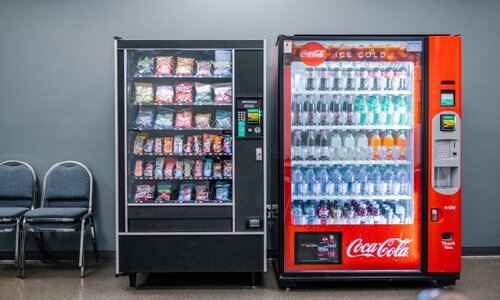How Advanced Vending Machine Businesses Are Thriving in Today's Market
 By
By
The vending machine industry, often seen as a static sector focused primarily on snack and drink dispensers, is transforming. This transformation is driven by technological advancements and innovative business models that cater to evolving consumer demands and operational efficiencies. These modern vending machines are not just revamping the concept of automated sales but also shaping a new micro-economy, creating opportunities for established businesses and startups. Modern vending machines increasingly incorporate advanced technologies that enhance user experience and operational efficiency. One of the key advancements is the integration of digital payment systems. Unlike traditional machines that relied solely on cash, newer models support a variety of payment methods: Contactless credit and debit cards Mobile payments like Apple Pay and Google Wallet QR codes and cryptocurrencies These diverse payment options facilitate convenience and cater to the growing segment of digital-savvy consumers who prefer cashless transactions for their minimal physical interaction and enhanced security features. Furthermore, the Internet of Things (IoT) connectivity has become a standard feature in advanced vending machines. This connectivity allows operators to manage their machines remotely. Benefits include: Real-time inventory tracking Automated restocking notifications Remote troubleshooting and maintenance updates Enhanced consumer behavior analytics The user interface in modern vending machines has seen significant enhancements. Touchscreens offer an interactive buying experience, with features such as: Multi-language support for inclusive access Nutritional information and product details Personalized recommendations based on user history and preferences Moreover, these advanced interfaces can adapt to display marketing messages or special promotions based on the time of day or the specific demographic profiles of the users in real time. For instance, offering breakfast-related products in the morning hours or promoting hydrating drinks during hot weather conditions. This ability to dynamically tailor the marketing messages enhances user engagement and potentially increases sales volumes. Today’s vending machines venture far beyond the traditional boundaries of snacks and drinks. They are now used to dispense a wide array of products, catering to niche markets and consumer needs: Electronics like earphones, chargers, and power banks Health and beauty products including sunscreens and hand sanitizers Fresh food options such as salads, sandwiches, and even hot meals This diversification into new product categories is particularly beneficial in emergency or unplanned purchase situations where traditional retail options might not be available, offering considerable convenience and meeting immediate consumer needs. The strategic placement of vending machines has evolved to encompass locations beyond schools and office buildings. High-footfall areas such as airports, train stations, and shopping malls are traditional locales, but there’s an increasing presence in: Residential complexes Hospitals and clinics Tourist attractions and theme parks Expanding into these new venues is particularly strategic because it places vending machines directly in the paths of potential customers, offering easy access to goods precisely when and where they are needed most, thus integrating seamlessly into the daily lives of consumers. As environmental concerns become more prominent, vending machine businesses are adopting sustainable practices. This includes: Energy-efficient machines that reduce electricity consumption Biodegradable or recyclable packaging for products Machines built from recycled or sustainable materials Implementing these green initiatives not only supports the planet but also resonates with modern consumers who increasingly prefer to support businesses that demonstrate environmental responsibility. This shift is not just ethical but also increasingly seen as a business imperative in a market that values sustainability. Modern vending machines also contribute to local economies by: Sourcing products from local suppliers and artisans Featuring local brands and specialties, especially in tourist-heavy areas By promoting local products, vending machines help to maintain the economic viability of the communities they serve. This practice fosters a sense of local pride and supports the local economy, creating a symbiotic relationship where both the vending machine operators and the community benefit. The vending machine business is proving to be a dynamic component of today’s micro-economy, driven by technological innovations and strategic adaptations. These businesses not only meet the changing consumer demands but also embrace operational efficiencies, sustainability, and community engagement. As this industry continues to evolve, it holds significant potential for growth and transformation, making it a vital player in the modern economic landscape. This trajectory suggests that the future of vending is not just about automation but about creating a more connected, sustainable, and consumer-focused experience. Integration of Advanced Technologies
Digital Payments and IoT Connectivity
Customizable and Interactive Interfaces
Expanding Product Ranges and Locations
Beyond Traditional Offerings
Strategic Placement in New Venues
Sustainability and Ethical Considerations
Emphasis on Eco-Friendly Practices
Supporting Local Economies
Conclusion
If you are inspired by the potential of modern vending machines and interested in starting your own vending machine business, explore detailed insights and practical tips on how to get started at Management.org's guide to starting a vending machine business.




